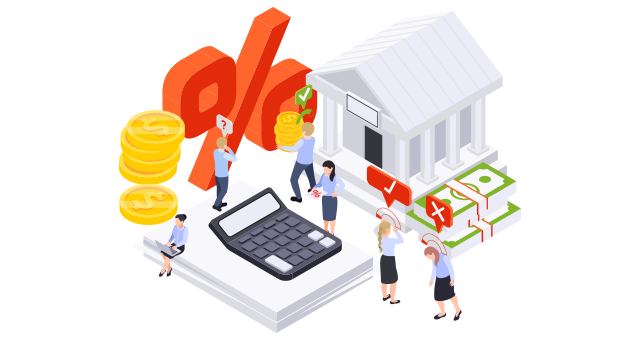
5 Surprising Things That Can Affect Your Mortgage Interest Costs
When shopping around for a mortgage most borrowers will gravitate to a lender that offers the lowest interest rate and the best terms. A low mortgage rate means increased purchasing power and a lower monthly payment. But, how is your mortgage interest rate determined? Most first-time homebuyers might acknowledge the positive impact of a good credit score on their mortgage rate. However, you may be surprised to know that besides credit scores there are multiple factors that affect your mortgage costs.
So, if you are thinking of purchasing or refinancing a home, here is a look at the five surprising things that can drive up your mortgage interest rate besides your credit score.
1. The Property Type and How You Plan To Use It
Some properties like a condominium, second homes, and multiunit buildings (2 – 4 units) are riskier investments as compared to a primary residence. For this reason loans on these properties typically carry higher interest rates.
Your mortgage rates also depend on how you plan to use your property. An investment property will qualify for a higher interest rate than an owner-occupied property.
2. The Amount of Money You Pay Upfront
Generally speaking the higher your down payment the lower will be your interest rate. This is because a large down payment will give you a lower loan-to-value ratio (LTV) and reduce the level of risk for the lender. It will also decrease the amount that you will borrow and therefore the total overall cost to borrow is less.
Additionally, if your down payment is less than 20% you may have to pay for PMI (Private Mortgage Insurance) which will increase your overall mortgage payment. However, depending on the type of mortgage loan this fee will drop off once you have reached an LTV (loan-to-value ratio) of 80%. That is why you need to look at the total cost of borrowing rather than just the mortgage interest rate.
3. The Type of Interest Rate You Choose
The two basic types of interest rates are fixed and adjustable. A fixed interest rate will stay constant throughout the life of the loan. But, an adjustable loan has an interest rate that will have an initial fixed period of three, five, or seven years after which the rates will adjust up or down based on the market.
So, depending on the market your interest rate may increase and you can end up with a significantly higher interest rate several years into the loan. It is important that you talk to your mortgage professional to know more about the difference between these two types of interest rates and decide on what fits your current financial state as well as how long you plan to stay in the home.
4. Whether Or Not You Pay For Points At Closing
There are two types of points: mortgage points and rebate points (also called lender credits). Mortgage points are fees you pay directly to the lender at closing to secure a lower interest rate and minimize your long-term interest costs. It can be a good choice if you have expendable cash on hand and know that you will keep the loan for a long time.
On the other hand, lender credits lower your closing costs in exchange for a higher interest rate. The lender gives you cash to offset your closing costs. When you receive rebate points you pay less upfront but you pay more over the life of the loan with the higher interest rate.
5. You Are Cashing Out Your Equity
Refinancing means taking out a new mortgage to replace an existing mortgage. Homeowners usually receive competitive interest rates on regular rate-to-term refinances as buyers who are purchasing a new home. However, when you take a cash-out refinance the interest rates are higher. This is because it poses a greater risk to lenders as the new mortgage is bigger than the old one and you are taking out equity in your home in the form of cash.
Conclusion
There are many other variables besides the ones mentioned above like the loan type and the mortgage amount that determine your mortgage rates. Understanding and evaluating these factors based on your financial situation can help you shop for the right mortgage product. Even a reduction of a fraction of a percent of the interest rate can help you save thousands of dollars over the life of your home loan.
Our mortgage loan specialists are dedicated to helping you find the most affordable mortgage possible. If you have any questions about different types of mortgages, interest rates, down payments or anything else get in touch with us and we will make financing your home as simple as possible.


